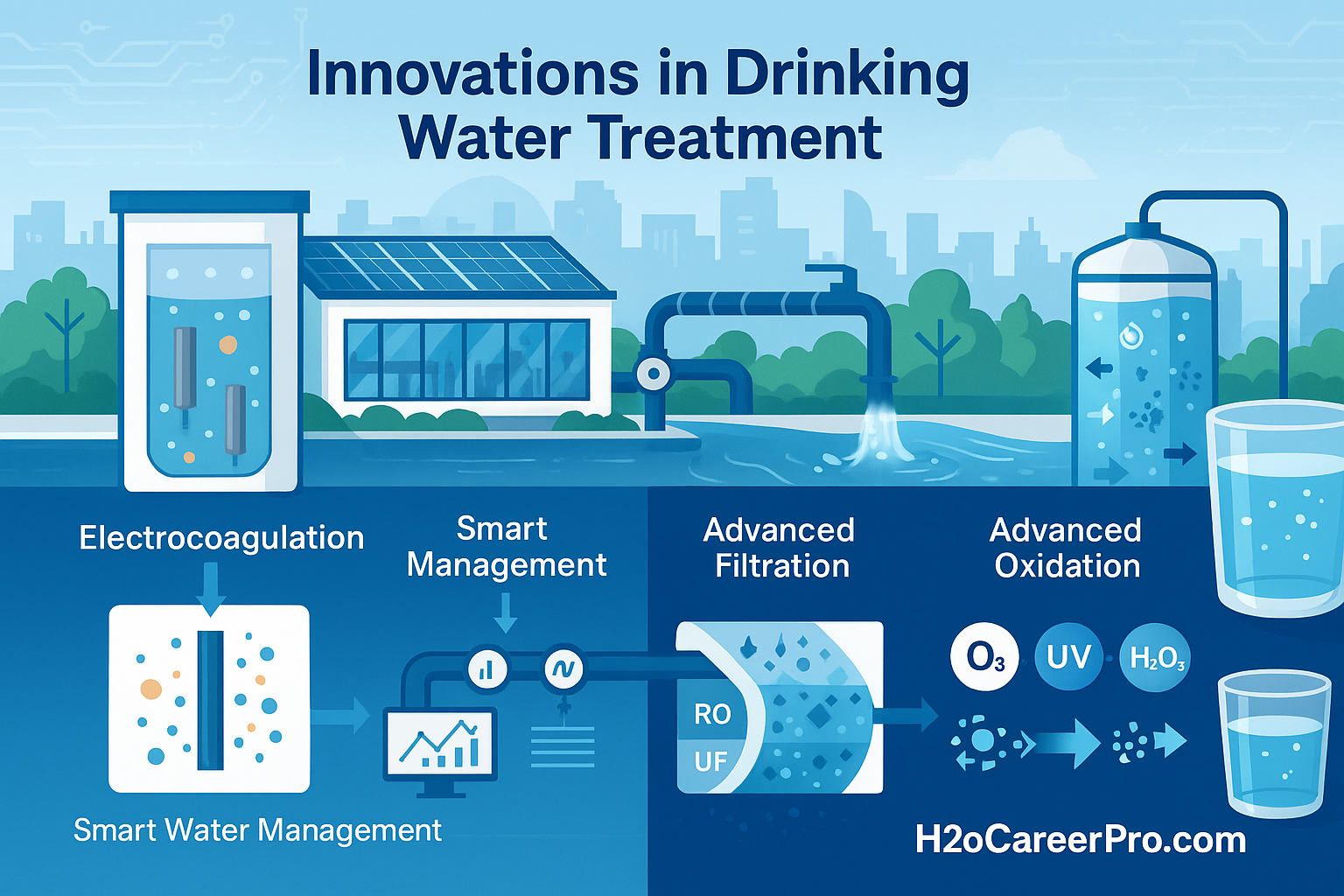As the global demand for clean and safe drinking water continues to rise, the drinking water treatment industry is embracing innovative technologies to enhance sustainability and efficiency. This article explores several cutting-edge advancements that are shaping the future of drinking water treatment.
Membrane Filtration Systems: Enhancing Water Purity
Membrane filtration technologies, such as reverse osmosis (RO), ultrafiltration (UF), and nanofiltration (NF), are revolutionizing water treatment processes. These systems utilize semi-permeable membranes to effectively remove contaminants, including bacteria, viruses, and dissolved salts, from water sources. Recent advancements in membrane materials have improved their efficiency, durability, and affordability, making them suitable for both industrial and municipal applications. By implementing these technologies, water treatment facilities can achieve higher water purity levels while reducing operational costs. Source
Advanced Oxidation Processes (AOPs): Breaking Down Complex Pollutants
Advanced oxidation processes employ powerful oxidants, such as ozone, hydrogen peroxide, and ultraviolet (UV) light, to degrade complex pollutants in water. AOPs are particularly effective in treating industrial wastewater and removing persistent organic pollutants, pharmaceuticals, and microplastics. These chemical-free and environmentally friendly processes offer a sustainable solution for water treatment facilities aiming to meet stringent water quality standards. Source
Electrocoagulation: An Eco-Friendly Alternative
Electrocoagulation is gaining traction for its ability to remove heavy metals, oil, and other contaminants effectively. This technology utilizes an electric current to induce the coagulation of suspended particles, making it an eco-friendly alternative to chemical treatments. Its scalability and versatility make it suitable for industrial and municipal applications. Source
Integration of Artificial Intelligence and Machine Learning
The integration of artificial intelligence (AI) and machine learning (ML) in water treatment operations has reached new heights. Facilities are now using AI-driven analytics for predictive maintenance, real-time monitoring, and process optimization. AI-powered systems can analyze vast amounts of data from sensors to detect anomalies, predict equipment failures before they happen, and optimize treatment processes for maximum efficiency. By automating these tasks, water treatment professionals can focus on strategic decision-making, improving overall plant efficiency and reducing operational risks. Source
Zero Liquid Discharge (ZLD) Systems: Maximizing Water Recovery
Zero Liquid Discharge (ZLD) systems are becoming a regulatory requirement in several industries. These systems recover and recycle almost all water from wastewater streams, leaving behind minimal solid residues. Innovations in ZLD technologies focus on reducing energy consumption and enhancing recovery rates. By implementing ZLD systems, facilities can achieve higher water recovery percentages and treat and recover valuable materials from wastewater streams. Source
Photocatalytic Treatment Methods: Harnessing Solar Energy
Photocatalytic treatment methods use sunlight and photocatalysts like titanium dioxide (TiO₂) to break down organic pollutants and pathogens in wastewater. Recent advancements include the development of more efficient catalysts and scalable systems, making it a promising solution for areas with abundant sunlight. This method offers an energy-efficient and environmentally friendly approach to water treatment. Source
Decentralized Wastewater Treatment Systems: Flexible and Cost-Effective Solutions
Decentralized systems, including containerized and modular treatment plants, are becoming popular for their flexibility and cost-effectiveness. These systems can be deployed in remote areas or on-site at industrial facilities, reducing transportation and energy costs associated with traditional centralized systems. Decentralized treatment offers a practical solution for communities and industries seeking efficient water management. Source
Supercritical Water Oxidation: Efficient Waste Processing
Supercritical Water Oxidation (SCWO) is an advanced treatment process that uses water at supercritical conditions to oxidize organic compounds efficiently. Companies like 374Water and Aquarden Technologies are actively commercializing SCWO systems for the treatment of biosolids, wastewater sludges, and hazardous pollutants such as PFAS. This technology offers a promising solution for the destruction of persistent contaminants in wastewater. Source
Conclusion
The drinking water treatment industry is undergoing a transformative shift towards sustainability and efficiency through the adoption of innovative technologies. By embracing these advancements, professionals can enhance water quality, reduce environmental impact, and meet the growing global demand for clean drinking water. Staying informed about these developments is crucial for industry leaders committed to sustainable water management.
For more insights and resources on advancing your career in the drinking water treatment industry, visit H2oCareerPro.com.
